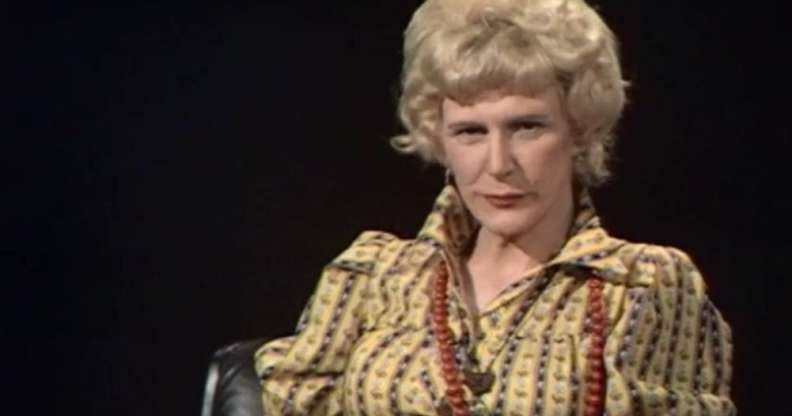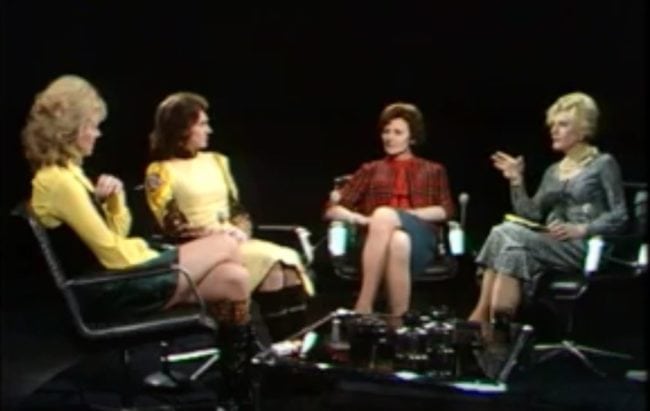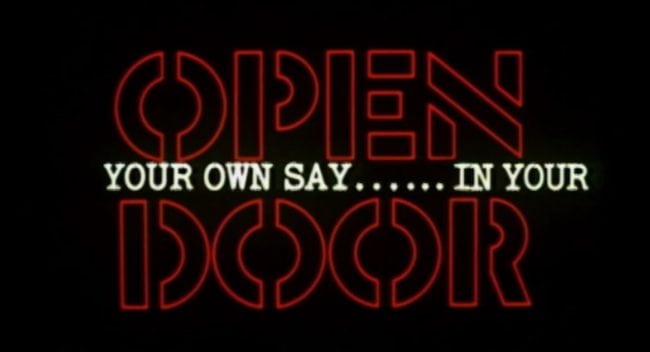Trans+ History Week: These women discussed trans rights on the BBC over 50 years ago

Trans+ History Week is back. Its founder, Marty Davies, wants everyone to know that trans people have always existed.
One valuable resource we have when looking back at the history of transgender people are the BBC Archives, which store copies of television and radio broadcasts, as well as photographs, online content, sheet music, commercially available music, BBC products, press cuttings, artifacts and historic equipment.
In those archives is a BBC programme that aired over 50 years ago, which explored transgender rights and the challenges facing trans people in the UK, in one of the first shows of its kind.
The show, which first went on air on June 2, 1973, was part of a series called Open Door that launched in April that year. To mark Trans+ History Week, we’re taking a closer look.
Championed by the BBC’s director of programmes at the time, Sir David Attenborough, the series provided a platform for marginalised groups to talk about issues affecting them, without any editorial intervention.
This episode, which contained terminology and language no longer deemed appropriate, but reflecting the attitudes and standards of its own era, featured trans women from the “Transex Liberation Group.” The trans content starts about one minute and thirty seconds in.
The group members held a discussion about their experiences as trans women in the 1960s and 1970s, commenting on day-to-day challenges, workplace issues and their transition journeys.
One speaker called Rachel talked about the difficulties she faced using bathrooms, an issue resonating with the current trans rights struggle. “If you go to the toilet, people turn immediately to see which one you are going to use,” she explained. “Things like this can get rather embarrassing at times.”

The group also discussed workplace discrimination.
“When it gets to getting a job, that’s the hard part, because you are exploited,” a speaker called Jen said.
“If you are lucky enough to find an employer that will employ you, he knows that you are sort of under this thumb. Therefore he is not going to offer you as much money as he would the girl next door, for instance, and that’s where I think it is so unfair.”
As well as discussing the challenges they have faced, the group also remarked on the positive aspects of their lives.
One member of the group recalled how she met her future husband while staying in Bournemouth.
“I was sitting in the ballroom and he came out and said ‘Oh you’re not drinking’. I thought I’d let him know I’m expensive, so I said ‘Darling, I drink Bacardi’” she explained.

“We sat there talking and then after a while I thought, I’d better tell him. I said ‘you realise what I am don’t you, I’m a sex change.’ He said ‘So what, you’re female, and I like you and that’s it’… It’s marvellous to be myself at last.”
The archive material was rediscovered as part of “Connected Histories of the BBC,” a project led by the University of Sussex, in partnership with the BBC, Mass Observation, the Science Museum Group, and the British Entertainment History Project, funded by the Arts and Humanities Research Council (AHRC). It’s now available again on BBC iPlayer.
David Hendy, curator of the collection and Professor of Media and Cultural History at the University of Sussex, said: “There’s a real thrill in piecing together the behind-the-scenes story of Open Door’s launch in 1973, not least because even now the programme feels so revolutionary in conception.
“When we pull together the different evidence – the written memos, oral history interviews, and the programme archive – the picture we get is quite stunning.
“Here we have the BBC effectively abandoning its traditional concern with ‘balance’ and handing over total editorial control to groups who rarely get a voice – certainly not on a national institution such as the BBC. Nothing like it had been seen on TV before.”
Trans+ History Week: The full oral history collection “100 Voices that made the BBC: People Nation and Empire” is available online.

